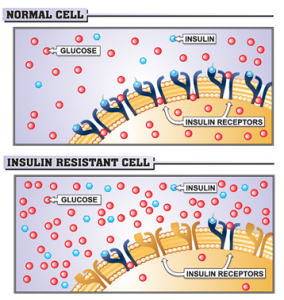The PCOD or polycystic ovarian disease is a disorder related to the endocrine system that happens to many women every year. The small fluid sacs develop over the ovary that may interrupt the ovulation process, cause irregularity in periods, and can cause infertility.
The excess growth of facial hair and menstrual cycle disturbance also can take place in women suffering from PCOD. If a woman remains untreated for a long time, she may have some other complications and get severe health-related problems.
However, the exact health issues related to PCOD are not known. So, does that mean that PCOD condition is dangerous for women? Well, not precisely! PCOD is not too dangerous for women, and it depends upon the way a woman is treating it and the severity of the symptoms.
Some of the Common Facts about PCOD
Here are some of the facts that tell us about PCOD and its risk.
• PCOD is the most common disorder related to hormonal disturbance and affects every 8 out of 20 women.
• It is likely to develop with prolonging medication like diabetic medicines, insulin, medicines for high cholesterol, heart disease, and high blood pressure.
• Women having type 2 diabetes and of age above 40 are at a higher risk of PCOD.
• Nearly 70% of ovulatory problems and fertility issues arise due to PCOD.
• PCOD is not too dangerous and can be treated if diagnosed earlier.
Risk Factors Associated with PCOD
Earlier, PCOD was thought to be genetic, and people have the misconception that this condition is transferred from genes of the mother. Moreover, people believed that this is one of the main risks of the disease.
 However, later this thing was proven wrong because PCOD is related to hormone disbalance and is often caused due to regular uptake of insulin and other medicines for a long time. So, women with health issues like diabetes are at greater risk of PCOD.
However, later this thing was proven wrong because PCOD is related to hormone disbalance and is often caused due to regular uptake of insulin and other medicines for a long time. So, women with health issues like diabetes are at greater risk of PCOD.
Some research also shows that women having PCOD have the risk of low-grade inflammation that further stimulates the production of a maleic hormone known as androgen in women.
Other Health Risks Associated with PCOD
Several other health risks associated with the PCOD are as follows:
Type 2 diabetes: Prolong consumption of PCOD medicines and PCOD can also cause type 2 diabetes, and can lead to a greater risk of developing insulin resistance in the body.
Infertility: The fluid-filled sacs in the ovary prevent ovulation, and affect the fertility rate in women. The possibility is there that PCOD might lead to infertility if remained untreated for a long time.
Obesity: PCOD is also responsible for gaining weight and causing obesity in women, though that might not be the case always..
Metabolic Syndrome: Metabolic rate of a woman can also be disturbed when she suffers from PCOD. The imbalance in the hormone level in the blood also affects the body’s metabolism and causes severe health issues.
Women with PCOD are at a greater risk of gestational diabetes, endometrial cancer, heart attack, and high blood pressure. Moreover, it also leads to miscarriage if a woman conceives with PCOD.

However, these cysts are not harmful if treated earlier, and hormonal balance is achieved. Women with PCOD often experience acne issues, access hair growth on facial region, and obesity. Body inflammation is another risk associated with the PCOD that women have when they suffer from hormonal imbalance.
Final Thoughts
Women who have PCOD must deal with these health-related issues. However, that doesn’t mean that the PCOD is that dangerous. If one can treat it on time, then there is a lesser risk of these health issues.
Moreover, if you maintain a diet, take proper medication, and manage a healthy weight, you will be able to treat the disease and achieve a healthy life.
Furocyst is a natural supplement for the management of PCOS and is a clinically evaluated and patented product for the same. It has no known side effects.
References
1. https://www.medicalnewstoday.com/articles/265309#:~:text=The%20cysts%20are%20not%20harmful,growth%2C%20acne%2C%20and%20obesity.
2. https://www.columbiaindiahospitals.com/health-articles/what-polycystic-ovarian-disease-pcod-causes-treatment
3. https://www.webmd.com/women/complications-pcos
4. https://www.indiraivf.com/pcod-causes-symptoms-treatment/
5. https://www.healthline.com/health/polycystic-ovary-disease




 It has been reported that fenugreek is an effective remedy to treat
It has been reported that fenugreek is an effective remedy to treat
